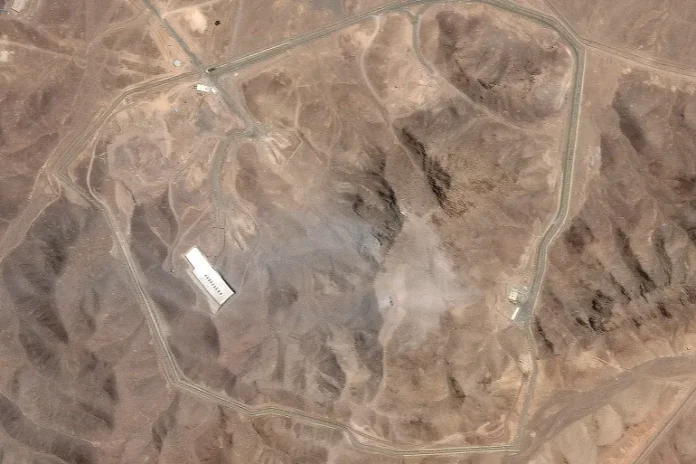
The market impact of President Donald Trump’s military strikes on Iranian nuclear facilities is already beginning to reshape investor expectations across asset classes, sectors and geographies, says Nigel Green, CEO of financial advisory giant deVere Group.
As markets reopen, investors are bracing for sharp volatility, with crude oil prices expected to surge and inflation forecasts now under intense scrutiny.
A conflict that had remained largely contained is now threatening to trigger broad-based repricing across the global economy.
“The US strike on Iran’s nuclear sites is a market-defining moment,” says Nigel Green. “It’s a direct hit to the assumptions that have been driving investor positioning: lower inflation, falling rates, and stable energy prices. This framework has just been broken.”
Brent crude had already been climbing steadily in recent weeks, but the decision to target Iranian nuclear facilities has dramatically increased fears of retaliation and disruption.
Any closure or threat to the Strait of Hormuz, through which nearly 20% of the world’s oil flows, would send prices sharply higher.
Some analysts now warn that crude could spike toward $130 per barrel, depending on Iran’s next move.
“Such a price shock would filter through to global inflation, which remains elevated and/or sticky in many regions. Market participants had been pricing in rate cuts from central banks including the Federal Reserve in the second half of the year. That is now in question,” notes the deVere CEO.
“A sustained surge in oil makes rate cuts very difficult to justify. If inflation spikes back up, monetary policymakers will be forced to hold, and possibly even reconsider the easing cycle altogether,” saysNigel Green.
“That fundamentally changes the landscape for equity sectors, currencies, and credit.”
He continues: “In equities, the most immediate reaction is likely to be a rotation out of rate-sensitive and consumer-driven sectors. Travel and tourism companies, which are highly vulnerable to energy costs and geopolitical disruptions, are expected to come under pressure. Tech stocks, particularly those trading on high multiples, may also see selling as the bond market rethinks the rate outlook.”
At the same time, there is likely to be “increased investor appetite for energy producers, commodity firms and companies tied to national defense. With military budgets already rising in several developed economies, firms linked to security, surveillance, aerospace and weapons manufacturing are well-positioned to benefit from a surge in demand.”
Meanwhile, consumer staples and utility companies, with stable earnings profiles and pricing power, may also draw inflows in this higher-volatility environment.
Safe-haven flows are expected to intensify. “Government bond yields may fall sharply on the short end, even as long-term inflation expectations creep higher. Gold, which has already rallied this year, is likely to climb further as investors hedge geopolitical and monetary risk.”
Currency markets could see a short-term bid for the US dollar on safety grounds, but the longer-term picture is more uncertain. With America now deeply embedded in a widening Middle East conflict, and inflation risks rising, the dollar’s appeal could diminish if the US growth outlook deteriorates.
“The dollar may rally initially, but this isn’t a clean safe-haven story,” says Nigel Green.
“If oil drives up inflation and suppresses consumer demand, we may see slower growth in the US and renewed pressure on fiscal stability. That’s not necessarily a supportive environment for the dollar longer-term.”
Green also notes that although past geopolitical events in the region have often led to short-term drawdowns followed by market recoveries, 2025 presents a very different macro backdrop. In previous conflicts, inflation was low, rates were near zero, and central banks had ample room to support asset prices. This is no longer the case.
“This is not 2019. We’re in a tighter, more fragile system now, with less room for error,” he says.
“Investors can’t afford to wait and see. They need to respond now, reposition portfolios, and focus on sectors and strategies that can withstand prolonged uncertainty.”
deVere is advising clients globally to reduce exposure to sectors vulnerable to energy cost spikes and to consider shifting allocations toward energy, commodities, and defensive names. Gold and inflation-linked bonds are also being recommended as part of broader portfolio hedging strategies.
“The time for passive optimism is over,” conclude the chief executive.
“This strike marks a turning point. The smart investors are already repositioning, those who hesitate risk being left exposed.”


The truth why they’re starting all these wars is kept secret….dropping bombs instead of fighting to find a cure for cancer….this world is messed up
They start these wars because of their holier than thou attitudes. The West thinks they are God and their perspectives on the world should rule. If my neighbour is growing dangerous plants in his garden I should speak to him-not invade his home and start destroying the garden
Your right about that however as long as religion rules the day this shall continue
@ Tikki
Yes religion mixed with Politics is a very bad combination….and the Israelis came up with all sorts of fake stories in the Bible……”and if you’re not careful the media will make you love the oppressor and hate the oppressed ” Malcom X
But I love the story how God stole a rib from Adam without him knowing to make eve then eve and the talking snake
who in their right mind hangs around when thet see a snake silly girl
Comments are closed.